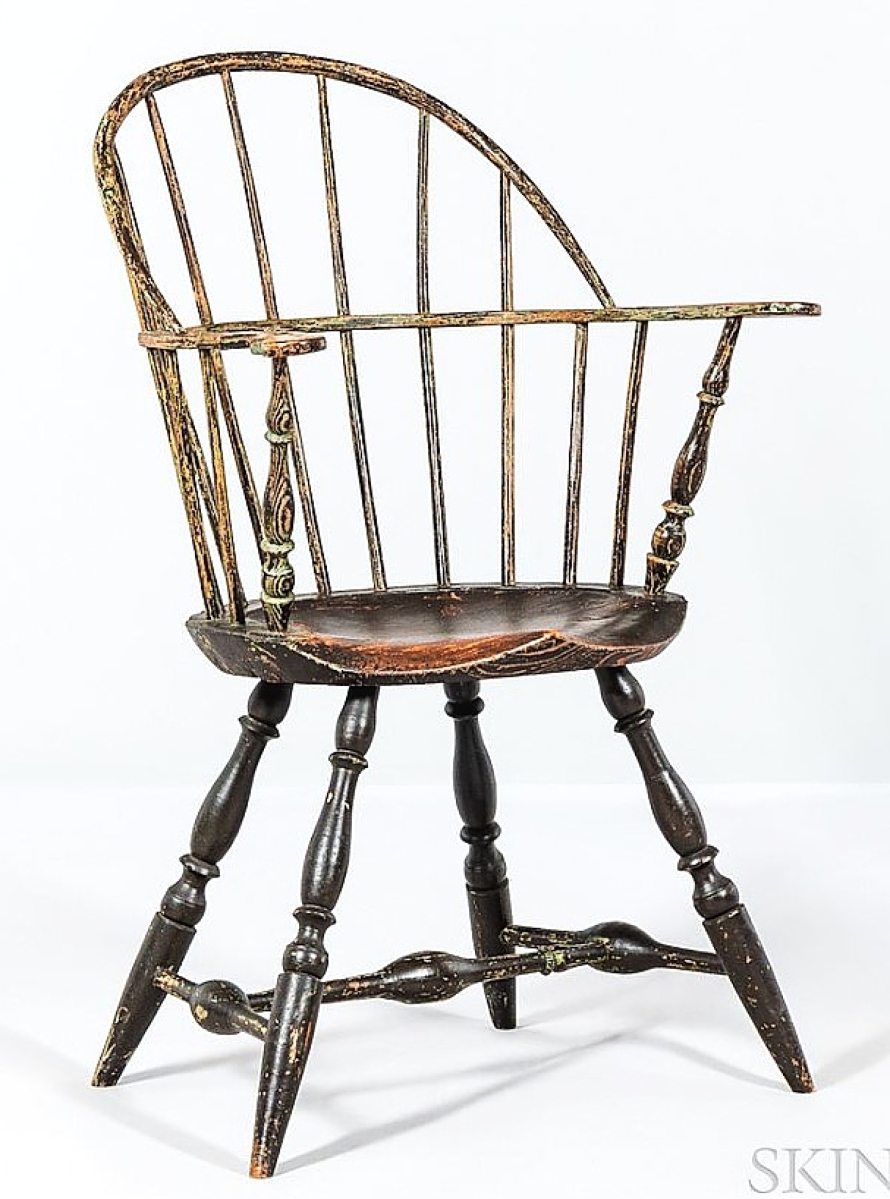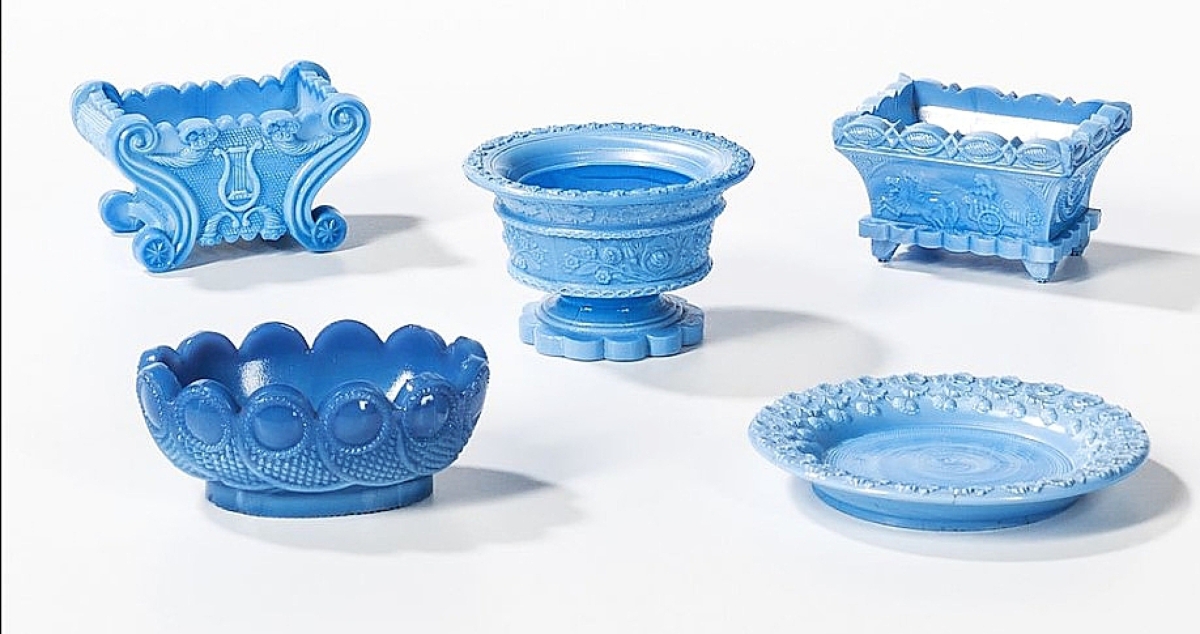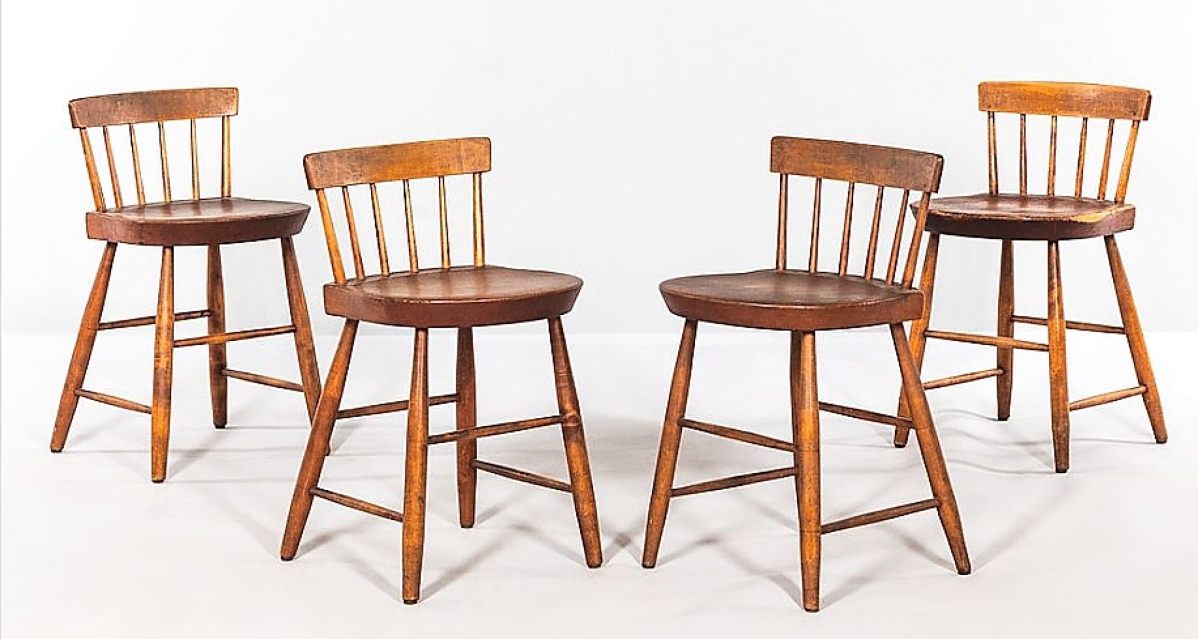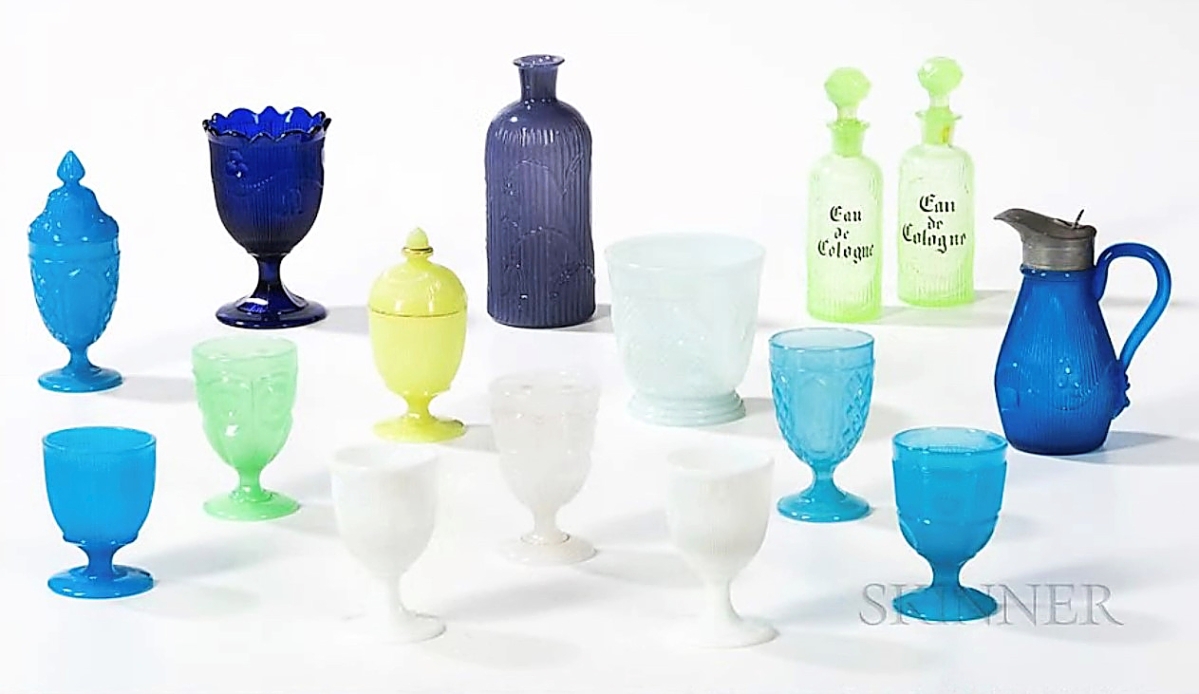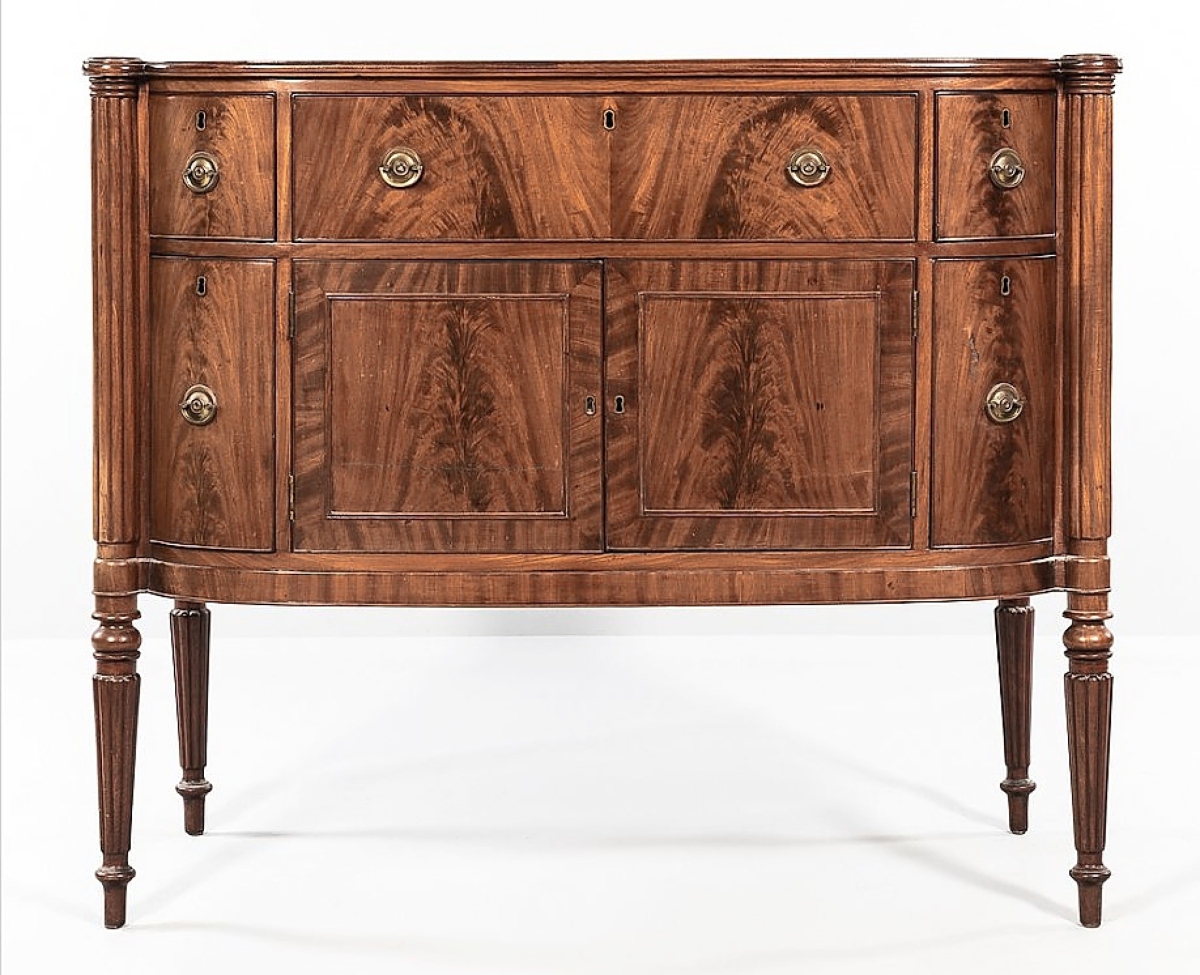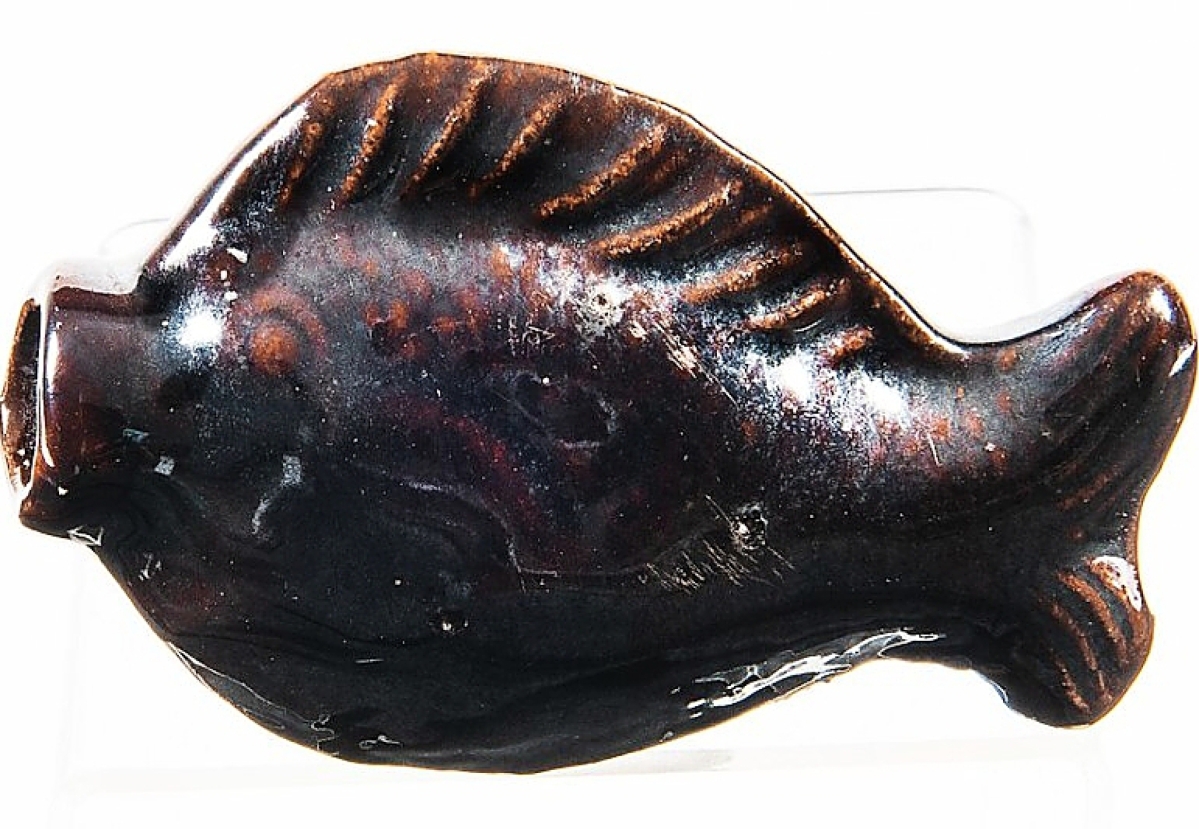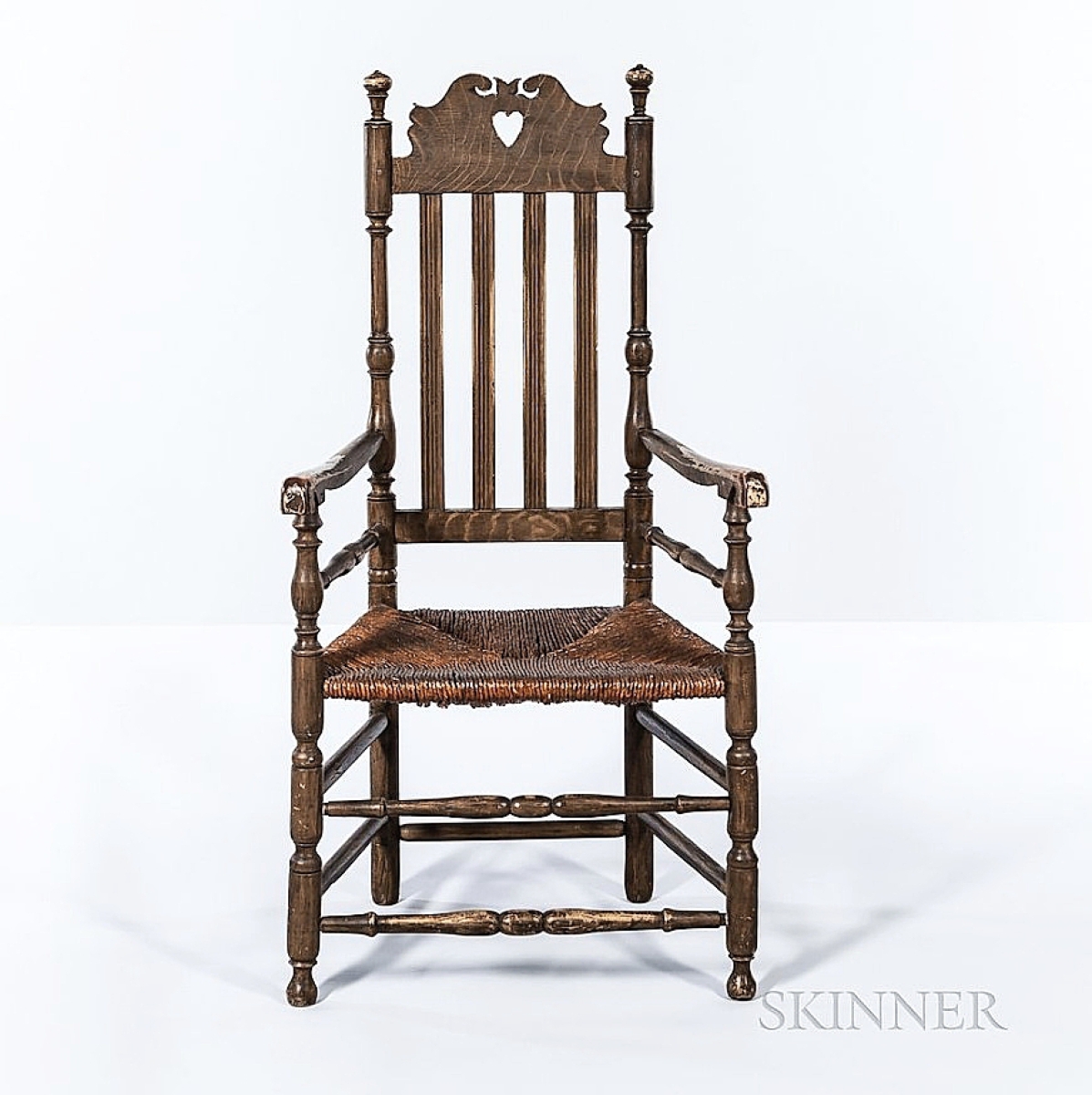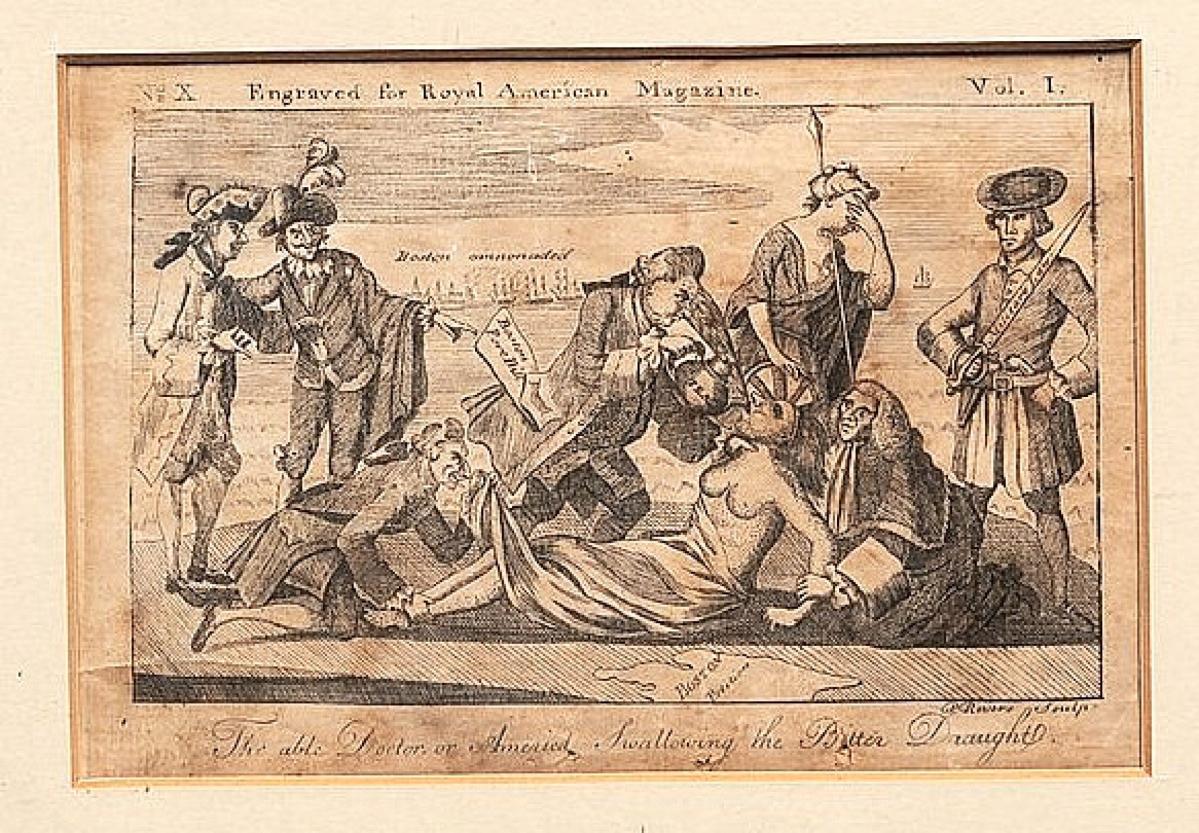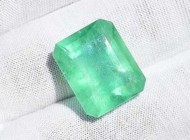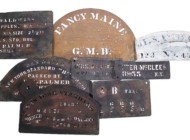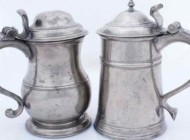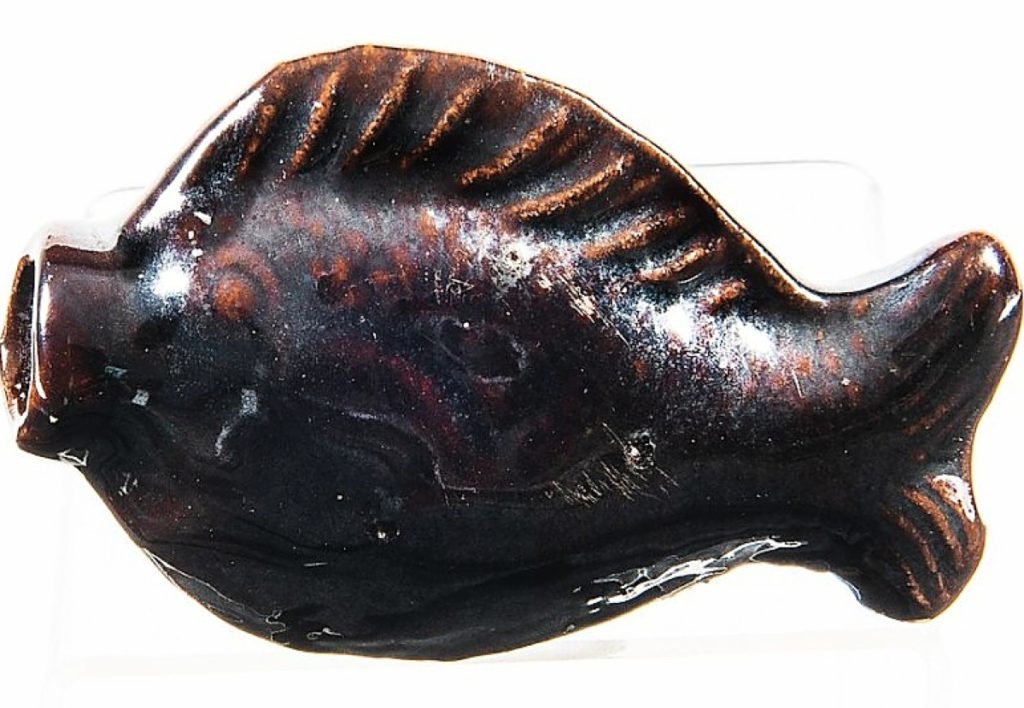
The underdog, or underfish? Either way, this redware flask was the clear success story of the sale at $9,375 ($200/250).
Review by Z.G. Burnett, Photos Courtesy Skinner, Inc
MARLBOROUGH, MASS. – There were a few unusual top lots at Skinner, Inc’s Americana sale on April 23, some being that ubiquitous temptation of all furniture collectors, chairs. Skinner’s online only sales tend to attract a more relaxed pool of buyers with a taste for the distinctive but not necessarily too expensive. The assembled highest lots demonstrated this more temperate speed and the steady build of inventory that forms the core of any great collection.
At the front of the school, the highest lot was a diminutive redware glazed fish-form flask. From the Nineteenth Century, the scales and body details were molded into the fish before glazing. Although fish are a common motif for figural bottles, a redware fish is rare and examples are often more detailed. This slightly more primitive fish is nonetheless highly collectible for redware enthusiasts and achieved $9,375 against a low estimate of $200/250.
The second and third highest lots were familiar silhouettes to early American furniture collectors. An Eighteenth Century maple and ash crown Great Chair from either Stratford or Milford, Conn., so named for its scrolled crest with a pierced heart combined with scrolled arms, sold for $9,375. This was a magic number for the top three lots as the third highest, a painted sack-back Windsor armchair, also realized $9,375. This too is believed to be of Connecticut origin, made circa 1780, slightly newer than the Great Chair’s 1760-65 estimated production. A set of four Shaker chairs, relative newcomers, circa 1835, were also in the top ten lots at $7,500.
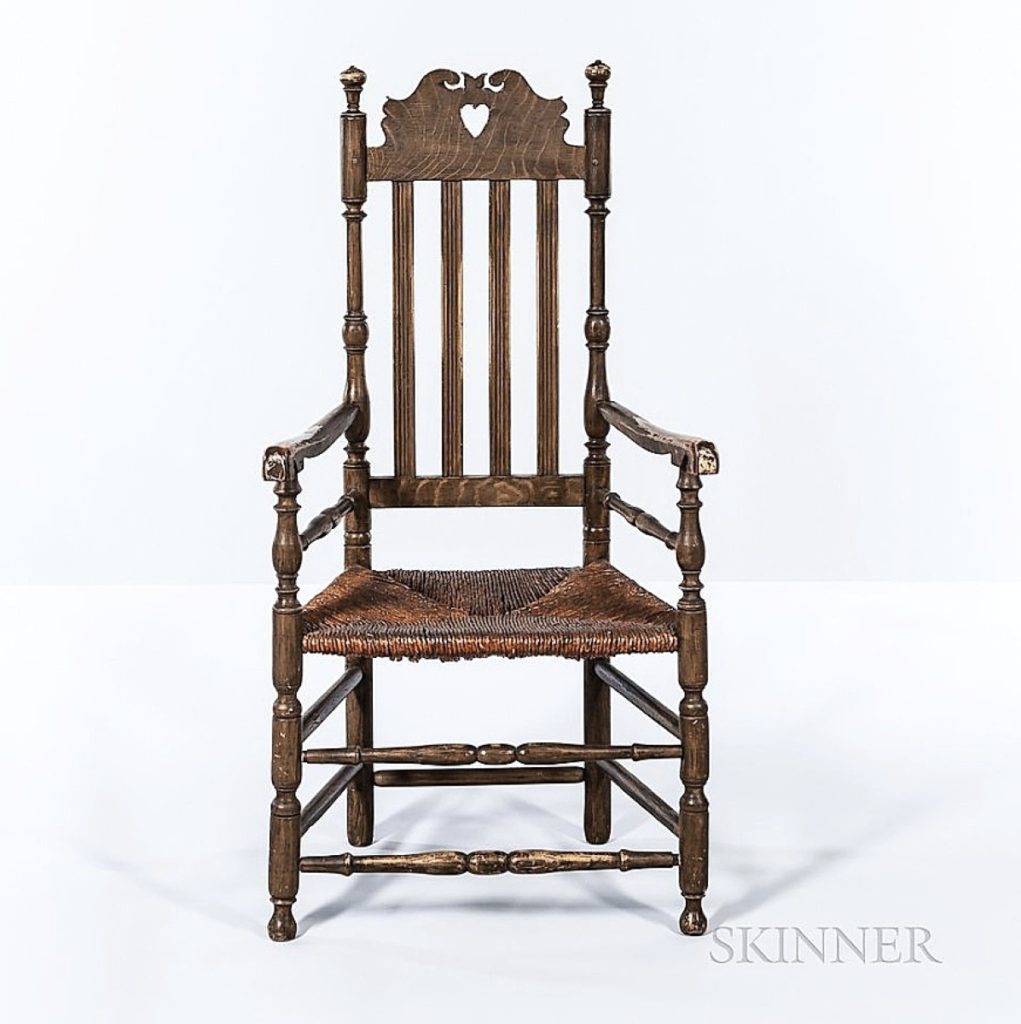
Great indeed, this maple and ash crown-crested Great Chair achieved $9,375 ($1,5/2,500).
Another discovery was a framed engraving by Paul Revere (1735-1818), “The Able Doctor, or America Swallowing The Bitter Draught.” Impressed on newsprint circa 1774, the engraving was published in The Royal American Magazine, a monthly, pro-patriotism periodical published in Boston, which only ran from 1774 to 1775. The cartoon shows Lord North, with the “Boston Port Bill” extending from his pocket, forcing tea (the Intolerable Acts) down the throat of a partially draped Native American female figure representing “America” whose arms are restrained by Lord Mansfield, while Lord Sandwich, a notorious womanizer, restrains her feet and peeks up her skirt. Britannia, standing behind “America,” turns away and shields her face with her left hand. The engraving sold for $7,500 against its $2/3,000 estimate.
Flanking the engraving on the top lots list were two group lots of glass. The first was a 15-piece set of Nineteenth Century pattern glass items including a spoon vase, syrup pitcher, seven small goblets, two perfume bottles, two covered containers, a bottle and a tall bowl. The items were in overall good condition, with just a few chips on a couple of pieces. Two pale green hand painted “Eau de Cologne” bottles with their original hexagonal stoppers and a small goblet stood out in the lot. Other notable items were a ridged amethyst bottle impressed with a lily-of-the-valley motif and a pale blue spoon vase. The group was estimated at $300/500 and realized $8,750.
The second highest achieving glass lot was a group of four opaque light blue pressed Sandwich glass salts from the Nineteenth Century. Sandwich glass is one of the most recognizable and collectible names in the pressed glass category, and these salts represent not only their era in form but also in function. When was the last time you saw a salt or a spoon vase on a dining table? These bits and pieces of the past are still coveted by buyers, as demonstrated by their $7,500 selling price against a $300/500 estimate.
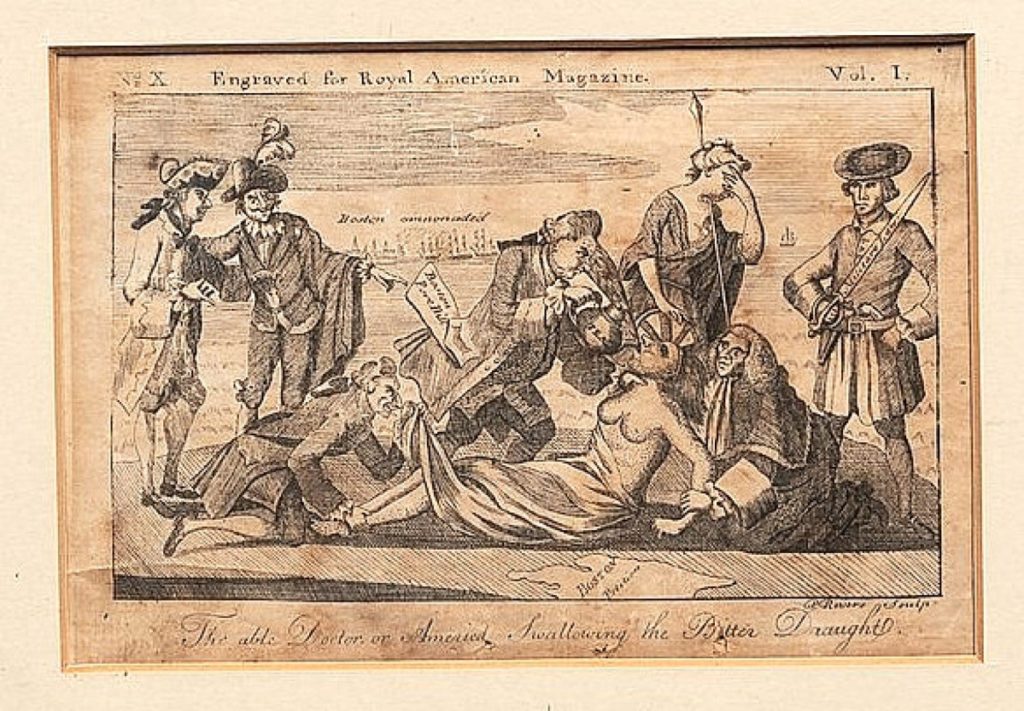
Engraved by Paul Revere for a short-lived patriotic Boston newspaper, this framed cartoon sold for $7,500 ($2/3,000).
More typical of the style that usually dominates Americana sales, a small Federal mahogany and mahogany veneer sideboard attributed to Thomas Seymour (1771-1848) sold for $6,875, tripling its $1,5/2,500 estimate. Seymour and his father, John, are considered some of the finest makers of Federal furniture, with examples of their work present in major museum collections. Who’s looking for replaced legs and brasses when presented with such stunning bookplate veneer? A lucky find, indeed.
Above all, the sale demonstrated that the spirit of collecting is alive and well, and that there are still treasures to be found for those who know where to look.
All prices include the buyer’s premium as reported by the auction house. For information, www.skinnerinc.com or 508-970-3211.

